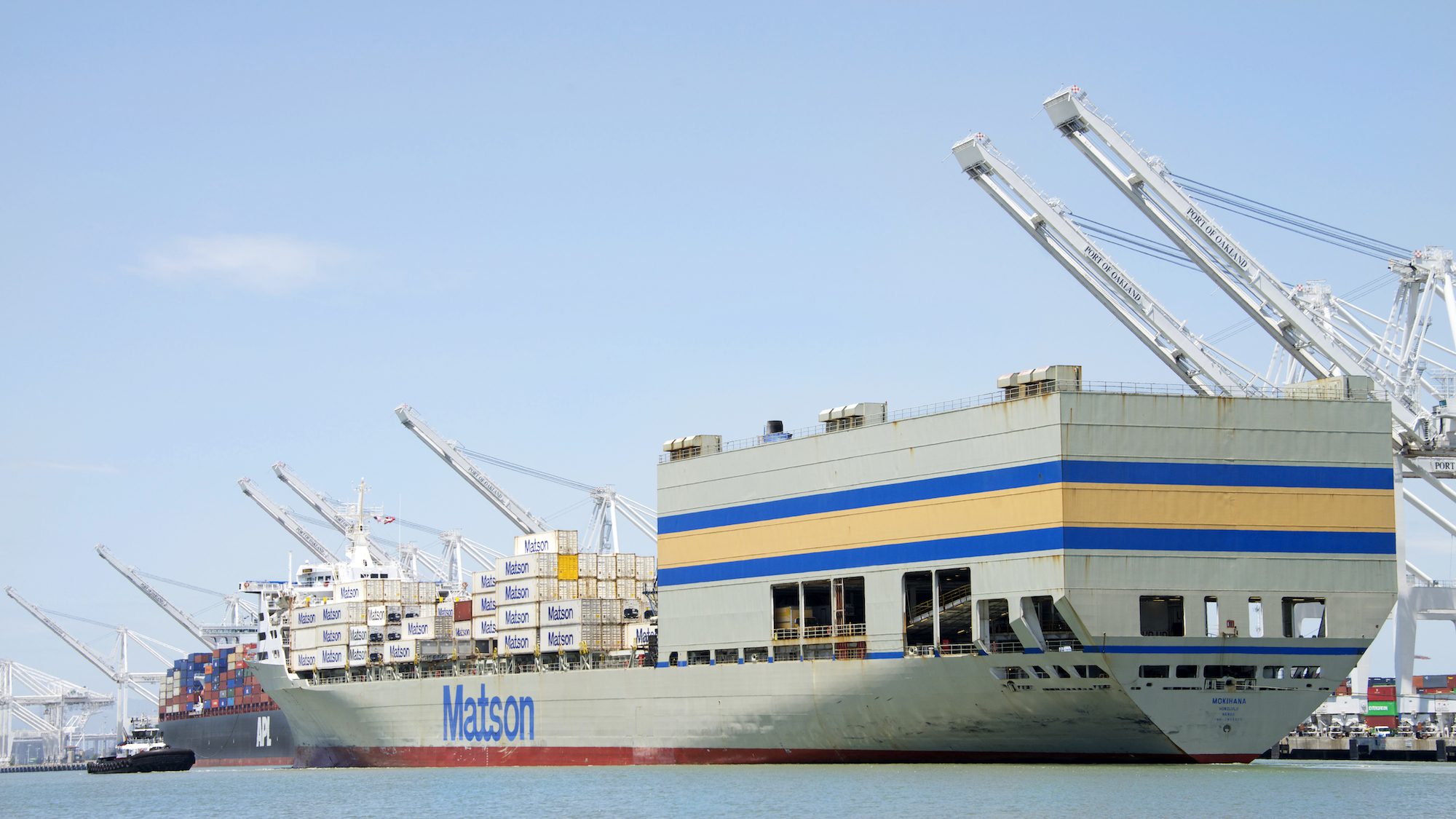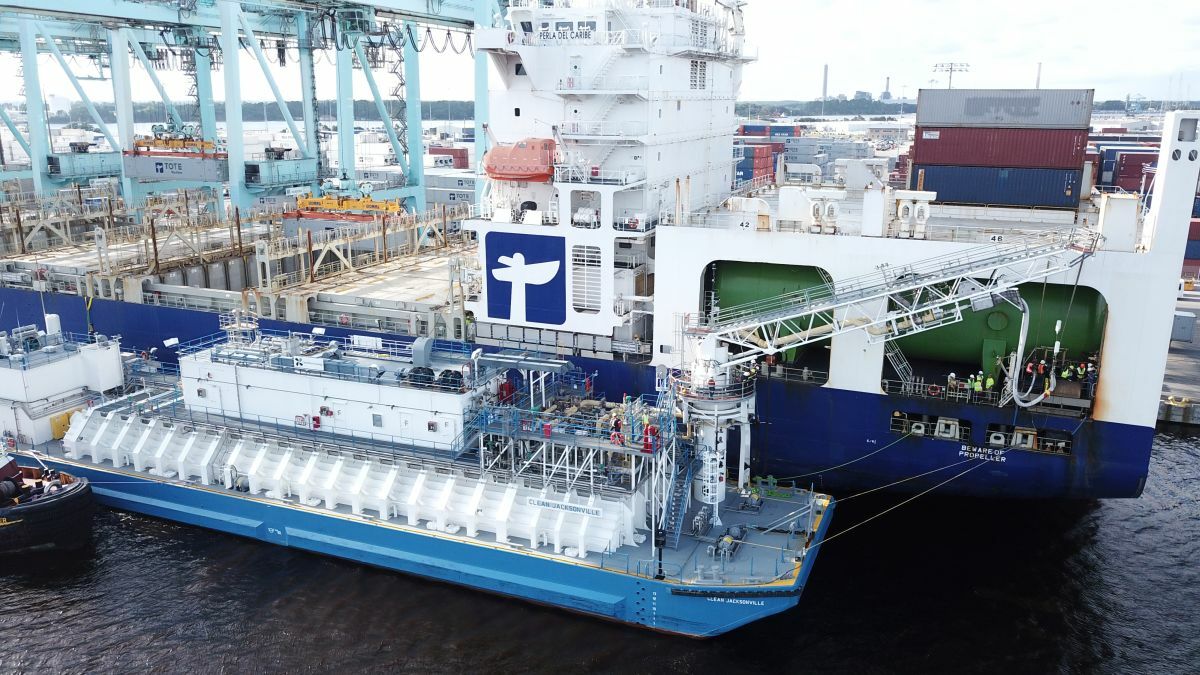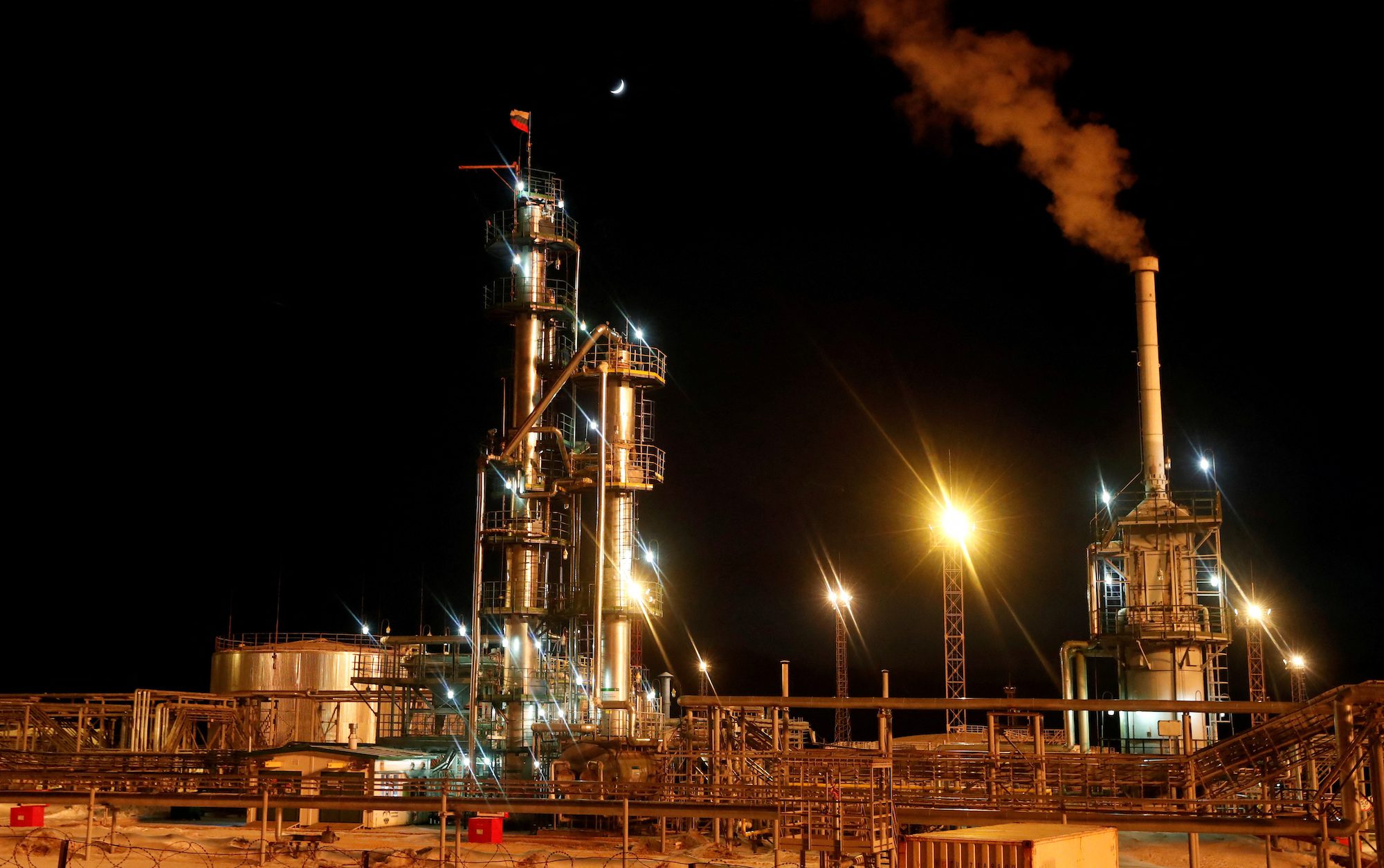Matson, Inc. (NYSE: MATX), a leading U.S. carrier in the Pacific, has announced the immediate suspension of transporting electric and plug-in hybrid vehicles aboard its vessels, citing growing safety concerns related to lithium-ion batteries.
“Due to increasing concern for the safety of transporting vehicles powered by large lithium-ion batteries, Matson is suspending acceptance of used or new electric vehicles (EVs) and plug-in hybrid vehicles for transport aboard its vessels,” the company stated in a customer advisory.
The decision follows several high-profile maritime incidents involving lithium battery fires, including the recent sinking of the Morning Midas in the North Pacific this June. The 600-foot vessel was carrying 3,159 vehicles, including 65 fully electric vehicles and 681 partial hybrid electric vehicles when smoke was detected from a deck carrying electric vehicles.
Despite crew efforts to deploy emergency firefighting protocols, the intensity of the fire forced all 22 crew members to abandon ship.
This incident echoes the February 2022 Felicity Ace disaster, where the car carrier caught fire in the mid-Atlantic and eventually sank with nearly 4,000 vehicles on board. Speculation has focused on lithium batteries in electric vehicles as the potential cause.
Maritime safety experts point to thermal runaway as the primary hazard with lithium-ion batteries. This phenomenon occurs when a battery enters an uncontrollable, self-heating state that can result in the ejection of gas, shrapnel, or particulates along with extremely high temperatures.
“Thermal runaway also means that the battery begins producing its fuel to burn, its oxygen to support combustion, and the heat necessary to keep the fire burning,” according to Matson’s website.
The U.S. Coast Guard previously issued warnings about the extreme risks associated with loading damaged EVs onto commercial vessels, particularly following Hurricane Ian where saltwater exposure led to numerous EV fires.
In addition to containerships, Matson operates combination container/roll-on/roll-off vessels as part of their fleet, serving ports across Hawaii, the U.S. Mainland, Alaska, and Guam.
The company stated it “continues to support industry efforts to develop comprehensive standards and procedures to address fire risk posed by lithium-ion batteries at sea and plans to resume acceptance of them when appropriate safety solutions that meet our requirements can be implemented.”
As the global maritime industry confronts these emerging challenges, regulatory bodies including the U.S. Pipeline and Hazardous Materials Safety Administration (PHMSA) have released new guidance for lithium battery shipping, requiring compliance with both domestic regulations and the International Maritime Dangerous Goods (IMDG) code.

 Join The Club
Join The Club











